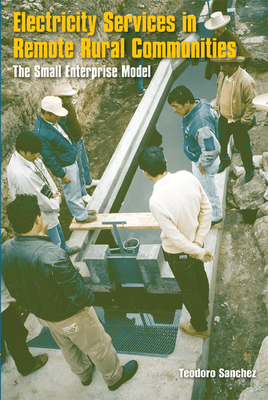Describes the design and use of a particular management model for electricity services in isolated rural communities. This model was designed with the clear objective of efficient financial and technical management, taking into account the social and economic environment and the committed participation of the community.
This book describes the design and use of a particular management model for electricity services in isolated rural communities. This model was designed with the clear objective of efficient financial and technical management, taking into account the social and economic environment and the committed participation of the community. The concept of private management is introduced, where a micro-enterprise is responsible for the running of the system and receives payment in exchange for the management of the service. A new tariff model for rural areas (the model of descending blocks) is used. Its application requires four important components: 1)The tariff scheme, the design of which is based on previous studies of socio-economic conditions and the development potential of electricity in the region. 2)The regulation of the use of electric energy, which highlights the responsibilities of the different actors and the activities that need to be performed for the system to function smoothly. 3) Contracts between the owner of the generating system and the service operator. 4) Contract between the service operator and the usersIt is estimated that this model could be used successfully in other energy generating systems (diesel, solar, wind-powered) with small changes, especially to the tariff scheme.
Get Electricity Services in Remote Rural Communities by at the best price and quality guranteed only at Werezi Africa largest book ecommerce store. The book was published by Practical Action Publishing and it has pages. Enjoy Shopping Best Offers & Deals on books Online from Werezi - Receive at your doorstep - Fast Delivery - Secure mode of Payment
 Jacket, Women
Jacket, Women
 Woolend Jacket
Woolend Jacket
 Western denim
Western denim
 Mini Dresss
Mini Dresss
 Jacket, Women
Jacket, Women
 Woolend Jacket
Woolend Jacket
 Western denim
Western denim
 Mini Dresss
Mini Dresss
 Jacket, Women
Jacket, Women
 Woolend Jacket
Woolend Jacket
 Western denim
Western denim
 Mini Dresss
Mini Dresss
 Jacket, Women
Jacket, Women
 Woolend Jacket
Woolend Jacket
 Western denim
Western denim
 Mini Dresss
Mini Dresss
 Jacket, Women
Jacket, Women
 Woolend Jacket
Woolend Jacket
 Western denim
Western denim
 Mini Dresss
Mini Dresss






























































